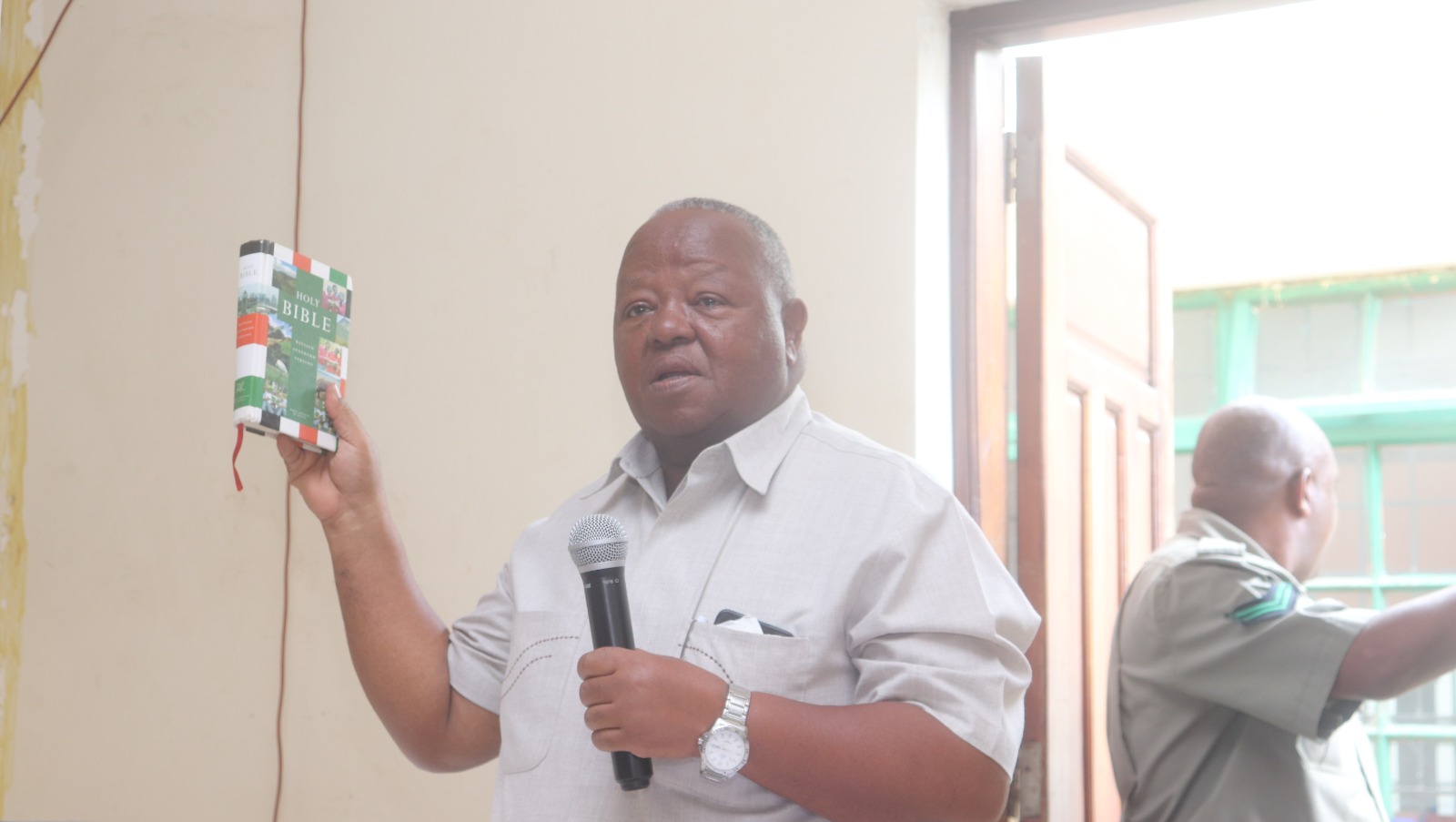

The Director of Public Prosecutions (DPP) has presented the Chief Executive Officer of the Coast Interfaith Council of Clerics, Dr Stephen Anyenda, as an expert witness in the ongoing trial of controversial preacher Paul Mackenzie.
Mackenzie and 92 others are facing charges under Kenya’s Prevention of Terrorism Act and the Prevention of Organised Crime Act.
Appearing before the Shanzu Law Courts, Anyenda submitted an extensive expert report on biblical interpretation.
Testifying before the court, he said fasting is not a pathway to heaven, as allegedly taught in Pastor Mackenzie’s Good News International Church.
He warned that misreading or distorting scripture can have dangerous consequences, including the rise of religious cults and extremist practices.
“Misinterpretation of the Bible can lead to dangerous consequences, including the rise of religious cults and unbiblical practices,” he told the court.
Anyenda’s report examined several theological themes such as the biblical view of beauty, apocalyptic prophecy, the doctrine of the Trinity, and the spiritual significance of fasting.
He explained that, in mainstream Christian belief, fasting is meant to seek divine guidance, express repentance, and deepen one’s intimacy with God.
The religious leader told the court that he had watched several of Mackenzie’s sermons on YouTube, describing them as extreme, misleading, and detached from sound biblical teaching.
He cautioned that selective reading of scripture can distort meaning and foster manipulation within faith communities.
“The Bible offers profound wisdom when interpreted accurately, guiding individuals and communities toward truth and righteousness,” Anyenda testified.
The court also heard testimony from other witnesses, including a Tanzanian national whose wife is among the accused.
The man said he last communicated with his children in 2023 and has since been unable to locate them.
He testified that DNA analysis by the Directorate of Criminal Investigations (DCI) linked him to one of the deceased victims exhumed from the Shakahola forest, prompting him to plan a visit to Malindi for verification.
Overwhelmed with emotion, he told the court he had not visited his parents because he could not bring himself to explain the disappearance of his three sons.
Another witness, the 76th to testify, described herself as a long-time member of the Good News International Church.
She told the court she had stopped seeking medical treatment since 2014, following the church’s teachings that reject modern medicine.
She also said congregants were discouraged from using beauty products or registering for the Huduma Number, beliefs she admitted she continues to uphold.
The hearing continues before the Shanzu Law Courts, with prosecutor Jami Yamina leading the case on behalf of the DPP.
More witnesses are expected to testify in the coming days as the prosecution builds its case around allegations that Mackenzie’s teachings led to mass starvation, deaths, and radicalisation at Shakahola.













